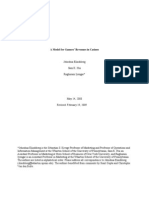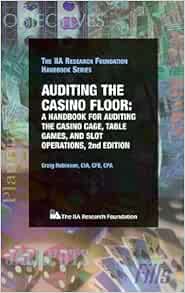Casino Auditing Classes
Companies in this industry operate gambling facilities or offer gaming activities, including casinos, casino resorts and hotels, bingo halls, lotteries, and off-track betting. Major companies include US-based casino operators Caesars Entertainment, Las Vegas Sands, and MGM Resorts, as well as Lottomatica (Italy), SJM Holdings (Hong Kong), Tatts Group (Australia), and William Hill (UK).
- The following courses are being offered in Las Vegas, Nevada. Click on any course for details and pricing, individual course dates and times, and registration information. All courses subject to change without notice. The deadline to cancel registration is two weeks (14 days) before the course start date.
- Course Length: 2 Hours “Internal Auditing – Basics” is a 2-hour eLearning course that introduces internal audit best practices and processes for food plant inspections. Geared toward individuals participating on an internal auditing team, this course provides a substantial overview of how to sustain food safety and quality systems.
Big Four firms in the gaming industry more often audit the books at publicly traded and nationally known casinos, while midsize firms often handle tribal casino engagements. Eve’s firm hopes to grow from $10 million in revenue in this “highly fragmented niche” to $100 million over the next 10 years. Nov 23, 2020 Without a thorough review and auditing of casino financial statements, documents and procedures a crime can continue to take place without the casino management even noticing it. Most of the villains involved with the commitment of fraud affecting the casino’s financial operation commonly involve the casino staff, managers, executives.
Competitive Landscape
Demand for gambling is driven by consumer income growth and state spending. The profitability of individual companies depends on efficient operations and effective marketing. Large operators have the financial resources to make significant investments in facilities and efficient computer operations; they may also enjoy cross-marketing opportunities. Small gambling facilities can thrive by catering to local residents, who may not be able to afford travel to such gambling centers as Las Vegas or Atlantic City. The industry is concentrated: the top 50 gaming companies hold about 60 percent of the market. The casino hotel market is even more concentrated, with the top 50 firms holding 90 percent of the market.
Products, Operations & Technology
Gaming operators mainly provide a place or a means to play games of chance, where the odds of winning favor the 'house.' Popular casino games are slot machines (slots); video poker; and table games such as roulette, baccarat, blackjack, and craps (dice). The house take on slot machines varies, depending upon the denomination of the slot machine, but generally runs between 5 and 10 percent. The take on most table games may be higher, from 15 to 30 percent. State lottery games are mainly numbers games. State lotteries often retain between 30 and 40 percent of all money bet, according to the National Conference of State Legislatures.This page includes resources for auditing in the gaming industry

Audit Resources
Casino Auditing Classes Online
Auditing in the Gaming Industry - PowerPoint presentation
Auditing the Casino Floor: A Handbook for Auditing the Casino Cage Table Games and Slot Operations, 2nd Edition from the IIA
Audit Programs - there are audit programs in our inventory that are available to subscribers. Search on gambling, casinos, gaming etc.
Casino Auditing Classes 2019
Colorado Department of Revenue Gaming Division - downloadable documents for reporting and controlling casino gaming

Compliance Audit Manual - from the Lottery Gaming Commission of Malta

Gaming Audit and Accounting Guide from the AICPA
Internal Auditing Guidelines Recommendations on Internal Auditing for Lottery Operators
This computer-oriented, late-night, high-risk industry needs CPAs— ka-ching!
BY CHERYL ROSENCasino Auditing Courses
Casino Auditing Classes For Minors
| ||||||||||||